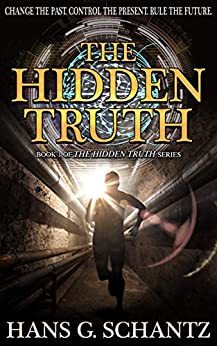I buy a lot of books, and sometimes I even read them. At BasedCon 2021 I picked up the first two books in Hans G. Schantz' “The Hidden Truth” trilogy. And since I bought two more books at this year’s con (not to mention the stacks of novels I’ve found at book and yard sales), finally reading them was long overdue.
So many books, so little time.
The first book in the series, the eponymous “The Hidden Truth,” is the first person account of an unnamed teenager’s coming of age. But this isn’t “Old Yeller.” It’s the sort of intelligent sci-fi that may trigger The Mandela Effect. It’s set in a world where Al Gore won the election against George W. Bush, but was killed on 9/11 when a plane crashed into the White House. He lives in a progressive dystopia, which is to say, a world very similar to our own but more obvious. The government has basically taken control of the internet as a matter of national security. Naturally, that means that Big Brother is always looking over their shoulders.
See what I mean about The Mandela Effect now?
While doing some historical/scientific research, our narrator and his best friend stumble across several odd discrepancies between the physical books in their school library and the digital copies available online. As they probe deeper, they find that some of the other physical copies have also been altered, seemingly at or near the time of publication, and it’s not just a single volume.
And the authors of these books died under mysterious circumstances.
In an interesting, real-world, twist, that part is true both in their world and ours. The scientists mentioned are actual historical figures, and they really did die unusually young. That Schantz uses this to explore fantastic theories reminds me of Tim Powers, though this is more science fiction (heavy on the science) than mystical.
It’s also not as long or dense in the same way as a Powers novel.
Unfortunately, the investigation draws the attention of the wrong people. Soon his entire family is considered a national security threat and people start getting killed, with catastrophic consequences. Since this is the first book in a series, it ends with more questions than answers. But by the end our narrator has a name and a mission.
I don’t normally do this, but I started the next book immediately.
Schantz's writing is the epitome of based fiction done well. Woke ideology is confronted head on, while God, family, and country are all held up as praiseworthy. Parents are admirable. Small business is ideal. Government is a necessary evil, but not your friend. So it won’t be for everyone, but it wrestles with difficult ideas in ways that are conversational and functional to the plot. If you are woke, I challenge you to read it anyway and expose yourself to the counterarguments.
Also, it’s a darn good read.

























